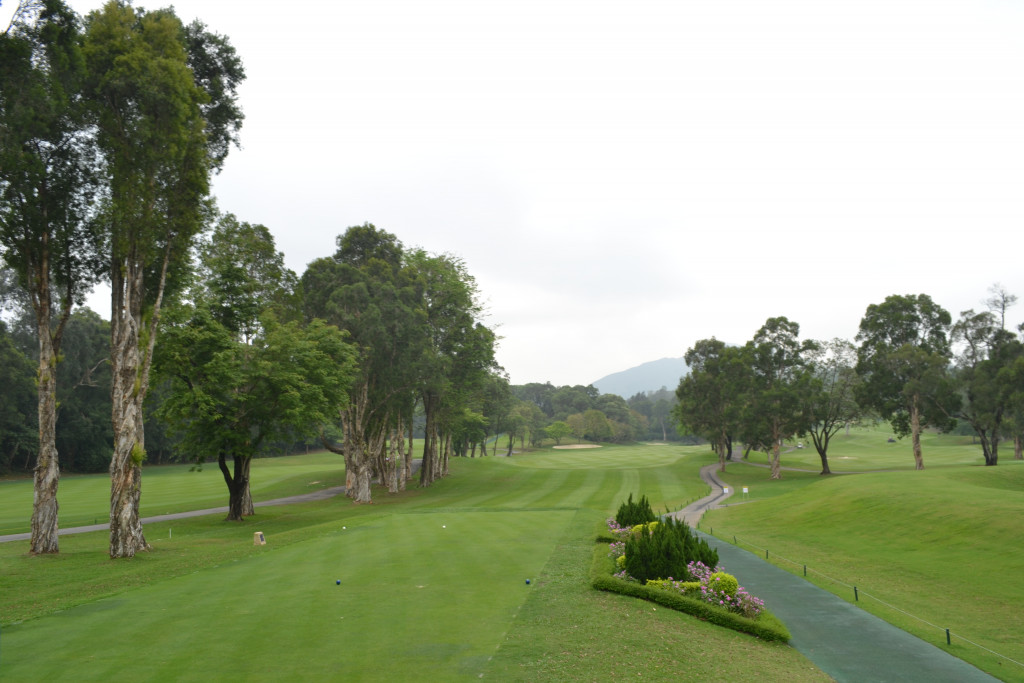Just when you thought it might just be possible to have a scintilla of sympathy for those rich folks at the Fanling golf course their representatives come up with a compelling reminder of why so many people think it would be a great idea to have public housing in place of a playground for the rich. Following the report by the Task Force on Land Supply, which found strong popular support for redeveloping 32 hectares of the 172-hectare golf course, Kenneth Lau, spokesman for the Hong Kong Alliance of Golfers, claimed that a move of this nature would threaten Hong Kong’s future as an international financial centre.
His logic is that golf courses are required for business discussions and for job interviews and that if the Fanling course goes, it’s bye-bye to Hong Kong’s future as an international business centre. Well, my oh my, there was me thinking that golf was some kind of sport, albeit a sport played by some distinctly un-sporty looking people. Mr Lau conveniently forgets that the Hong Kong Golf Club, which occupies these lavish premises, has a tiny membership, certainly way too small to embrace the entire or even a small part of the financial community.

But his claim is interesting because it goes to the heart of the elitist thinking that has so often shaped Hong Kong policy. In essence, this means that when there is a clash between the greater public good and the interests of a remarkably small rich and powerful elite, there is no contest. In this spirit, it is easy to understand why a playground for the rich has priority over decent housing. And it follows that elite schools should occupy much larger spaces than schools for ordinary folk, private hospitals be located on prime sites and, of course, when it comes to housing we all know who gets a disproportionate share of the land.
It may be argued that Hong Kong is no different from anywhere else in this respect but this is simply not true because in most capitalist societies all land is not owned by the state which uses its ownership to determine land allocation and pricing policy. There is no such thing as a free market for land in the capitalist Valhalla of the Hong Kong SAR.
Most of the anomalies that arise over the state’s domination of land supply and ownership have been inherited from the colonial era where the interests of the elite always stood above those of everyone else.
And it was in this era that the government used its control of land for political expediency. The main legacy here is the totally absurd policy of giving male so-called indigenous people free plots of land.

The century-old policy was the product of a deal between the colonial administration and the Heung Yee Kuk, which at the time was the main force resisting the government. However, it did not take long for the wily colonial administrators to realize that they could be bought off. As ever once the Kuk got its way over gifts of free land they were never shy about using their power to influence other policies in order to enrich themselves.
To this day the bureaucrats are terrified of the powerful Kuk – which adroitly moved to sign up to the new post-colonial order – and, despite being the main beneficiaries of the colonial system, have been reborn as Chinese super patriots.
The upshot of this colonial legacy is that vast swathes of land owned by Kuk barons are held hostage in the search for places to build new housing. The amateur league officials who are dispatched to do business with the Kuk shake their heads in despair, sometimes bowing to their demands while at other times wringing their hands in frustration. Thus much of the land owned by Kuk barons has been laid to waste while their owners contemplate ways of screwing money out of the government. In the meantime, these brownfield sites are dumped into the too hard basket by officials who have, under Carrie Lam’s leadership, decided that the only way to find land for housing is to reclaim it from the sea at great cost.
In many ways this is cowardice carrying a staggering price tag. If the government is not prepared to confront the Kuk in the interests of the vast majority of the Hong Kong population, it will find that their appetite will be never be satiated.

The so-called public consultation, which gave rise to the task force land supply study makes clear what the public wants, which is that the government will finally stand up for the people and challenge these powerful vested interests who are preventing the provision of decent housing in an overcrowded city.
Telling the Hong Kong Golf Club that the party is over would go some way to achieving this end but until the government is also prepared to stand up to the Kuk there is little hope for rational allocation of land, which in turn means that the majority of Hong Kong people remain condemned to live in sub-standard housing.
